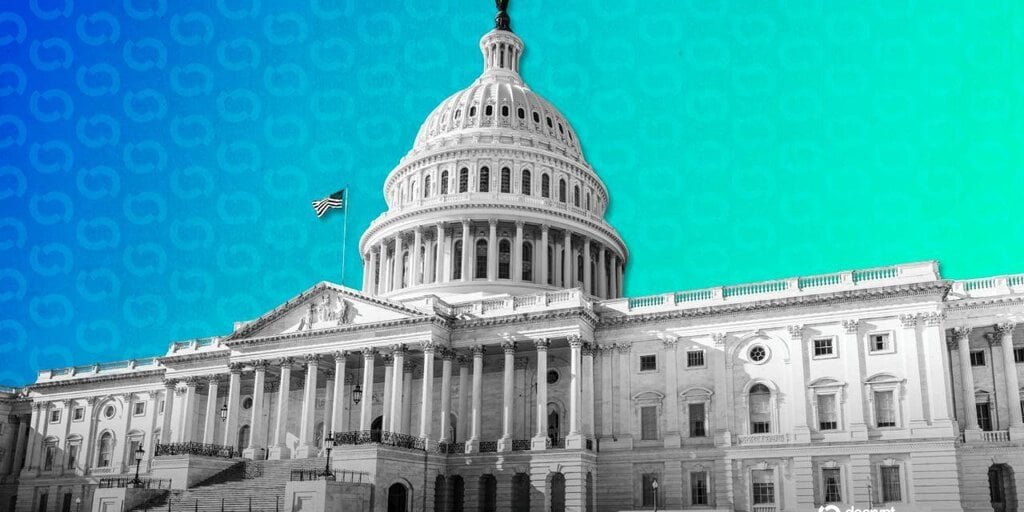Legislative Action on Crypto Holdings: A Deep Dive
Khanna’s Renewed Push for Crypto Restrictions
Representative Ro Khanna is spearheading a legislative effort to prohibit elected officials from owning or creating cryptocurrencies. Khanna, a Democrat from California, argues that this measure is crucial to address concerns about corruption and potential conflicts of interest. He has been a vocal proponent of stricter ethical standards for lawmakers, and this new initiative builds on his previous efforts in this area.
Read Also: Khanna Wants Trump Banned From Crypto
The Spark: Trump’s Pardon of CZ
Khanna’s announcement was directly linked to President Trump’s pardon of Changpeng Zhao, the founder of Binance. Khanna characterised this pardon as “blatant corruption,” claiming it underscored the need for stringent regulations to prevent undue influence and financial impropriety. He claimed Zhao, while at Binance, was responsible for money laundering connected to Hamas, Iran, and child abusers.
It’s important to note that Khanna’s characterisation contained some inaccuracies. While Zhao pleaded guilty to money laundering violations as part of a $4.3 billion settlement between Binance and the U.S. Department of Justice, he was sentenced to four months in prison, not four years, and was not “convicted”.
The Broader Implications for Crypto in Politics
The core of Khanna’s argument rests on the premise that elected officials should not be in a position to personally benefit from their policy decisions related to cryptocurrency. His concern centres on the perceived potential for corruption, in which officials could use insider knowledge or influence legislation to enrich themselves through crypto investments. This argument taps into a broader debate about transparency and accountability in government, especially as digital assets become increasingly intertwined with the financial and political landscape.
Historical Context: The Ban Congressional Stock Trading Act
This isn’t Khanna’s first foray into regulating the financial activities of elected officials. In 2023, he authored the Ban Congressional Stock Trading Act, a bipartisan bill designed to prevent members of Congress and their families from trading individual stocks while in office. The Act sought to enforce divestment from individual holdings or placement of assets into qualified blind trusts, limiting investments to diversified funds or U.S. Treasury securities.
Although the 2023 Act didn’t pass, it played a role in the ongoing push to restrict lawmakers from trading stocks or crypto while holding office, setting the stage for his current crypto-focused initiative. While the political climate towards crypto is shifting, achieving bipartisan support for further restrictions will be crucial. The results of the upcoming midterm elections will significantly affect the likelihood that this legislation will gain traction.
Impact on the Crypto Landscape
Potential effects
- Increased Scrutiny: This initiative could prompt a wave of investigations into the financial dealings of elected officials in the crypto space.
- Stricter Compliance: Lawmakers may face increased pressure to disclose their crypto holdings and trading activities.
- Legislative Hurdles: Passing such legislation could face significant opposition from those who view it as overly restrictive or an infringement on individual rights.
Current Challenges
- Defining “Ownership”: Defining what constitutes “ownership” of cryptocurrency in a legally enforceable way presents a significant challenge. Does it include indirect ownership through investment funds or decentralised autonomous organisations (DAOs)?
- Enforcement: Ensuring compliance with such a ban would require robust monitoring and enforcement mechanisms. The resources and infrastructure needed for this are not yet fully in place.
- Impact on Innovation: Some argue that restricting elected officials from participating in the crypto market could stifle innovation and limit their understanding of the technology.
The Path Forward
As the crypto market matures and its influence on the broader economy grows, the debate over regulation will only intensify. Khanna’s proposal is a sign of things to come, highlighting the need for a balanced approach that promotes transparency and accountability without stifling innovation. The crypto community must actively engage in these discussions to ensure regulations are fair, effective, and conducive to the industry’s long-term growth.
Looking ahead to 2025, we are likely to see continued efforts by elected officials to regulate crypto ownership and trading, both in the US and abroad. The outcome of these efforts will depend on a variety of factors, including the political climate, the evolving regulatory landscape, and the crypto industry’s ability to effectively advocate for its interests.






